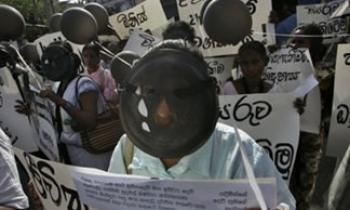It is a tough summer to be a UK media chief executive: in the past month SMG's Andrew Flanagan and ITV's Charles Allen have both departed stage left, pursued by shareholders.
Flanagan and Allen, as their singing namesakes once put it, were forced to "run rabbit run" after failing to reverse their companies' share price decline.
Now investors, dissatisfied by lamentable share price performance elsewhere, are piling pressure on chief executives across the media sector.
MediaGuardian.co.uk has charted the share price movements of 15 key media stocks over the past year, and it is clear that no one can afford to be complacent.
Over a period when the FTSE 100 index has risen by 12%, none of the companies surveyed has matched that growth.
In fact, 10 of the 15 have seen their shares fall, with radio group GCap Media heading our table with a 30.1% year-on-year plunge.
However much chief executive Ralph Bernard says he is concentrating on running the business and not worrying about the share price, a share price performance like that translates into pressure to perform.
Other bosses facing questions from investors include Chrysalis's Richard Huntingford and Sly Bailey of Trinity Mirror, who has announced a review of the company's assets.
In the past week UTV has made a strategic move, with a formal approach to fellow ITV franchise owner and radio business SMG about a possible merger.
Overall, the companies that have suffered most - and whose chief executives are therefore at most risk - are those with most exposure to the stuttering UK advertising market.
Whether radio, TV or newspaper or magazine publishing companies, they have all struggled in the face of tough trading conditions that have seemingly shown no let up.
Executives and analysts are divided as to whether the faltering state of the UK advertising market is structural - part of a long-anticipated shift from old to new digital media - or merely cyclical.
It is notable that the five companies that saw their share price rise over the year - Pearson, Aegis, WPP, Reed Elsevier and Reuters - all have significant international businesses, or operate in areas outside the core media activity of advertiser-funded broadcasting and publishing.
Moreover, advertising companies, such as WPP and Aegis, which can diversify into new revenue streams such as the internet, are proving more resilient than traditional media companies reliant on getting their slice of advertisers' budgets from TV, radio and publishing.
Traditional media's main strategy as it attempts to head off the worst of the downturn has been to switch investment to digital businesses.
Newspaper groups such as DMGT, Trinity Mirror and Johnston Press have all put money into online advertising vehicles as they hope to offset the damage to their print advertising revenues.
Broadcasters have also been developing their digital businesses, whether it be with new TV and radio channels, or website, broadband and mobile services.
For the TV, radio and publishing companies struggling in the current climate, there is some sympathy: the fund managers know it's hard for all of them.
But you can only moan about the market for so long before investors get desperate enough to throw someone else the challenge.
As the departure of Flanagan and Allen has shown, no one is completely safe and things can move fast once the City's quiet assassins smell blood.









